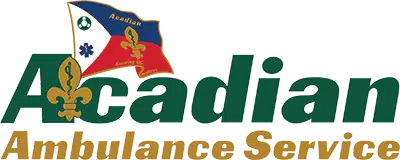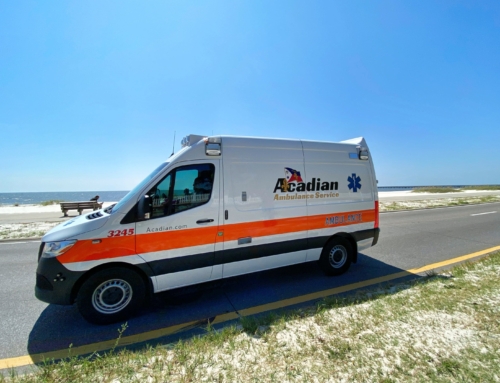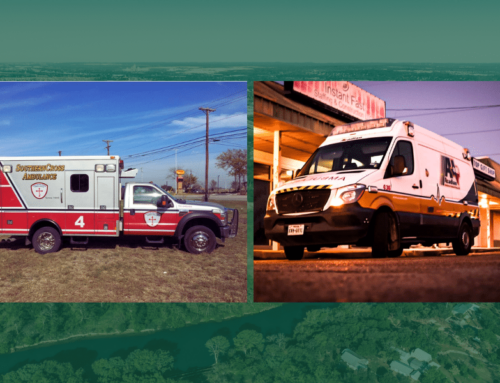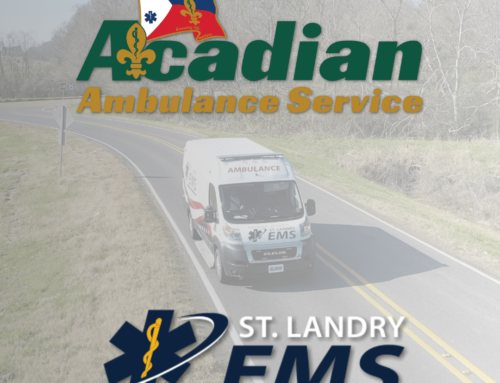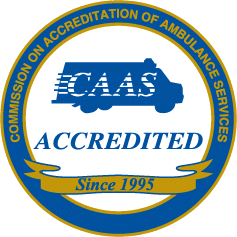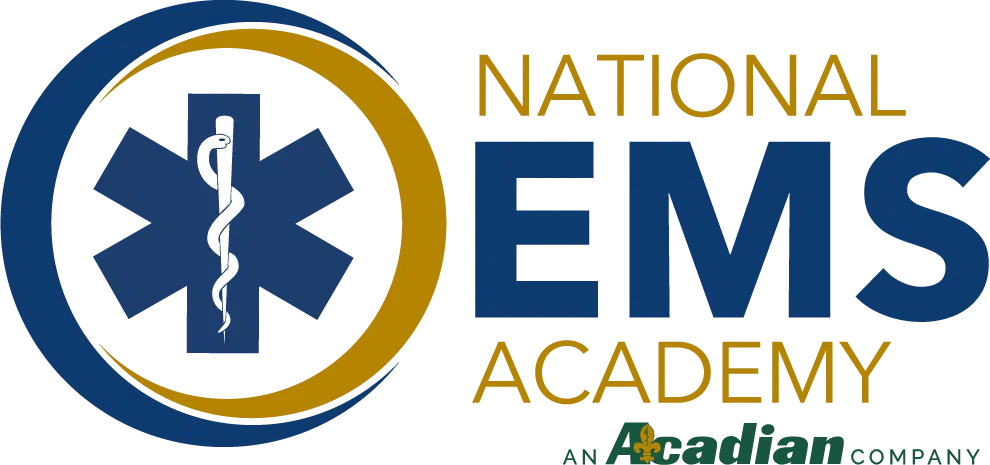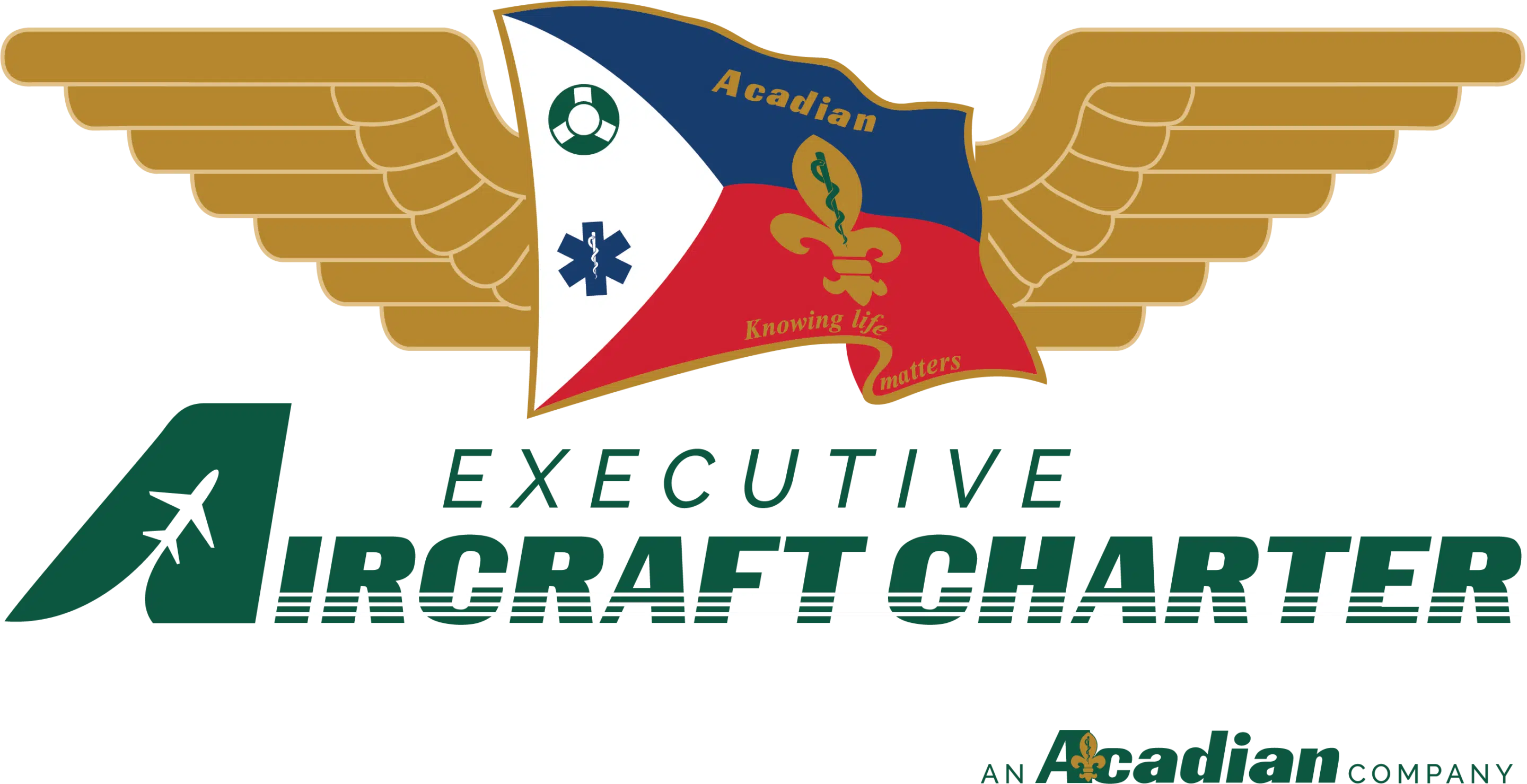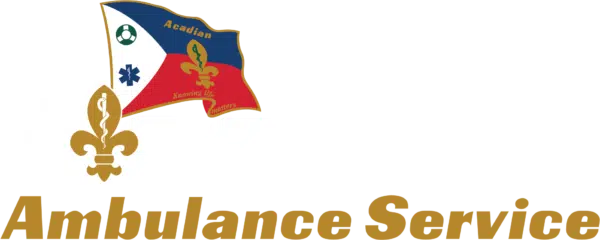February 14, 2019–Acadian Ambulance Service, Inc., the largest employee-owned private ambulance service in the nation, is at the forefront once again for innovation in health care. Acadian has been working in collaboration with the American Ambulance Association, its members and other EMS organizations for the last five years to develop a structural framework that would support innovative payment models for emergency and non-emergency ambulance services.
We are pleased to announce that as a result of these partnerships, the Federal Center for Medicare and Medicaid Innovation (CMMI) today announced its commitment to develop innovative payment models for ambulance providers and suppliers. These pilot programs will include, but not be limited to, changes in destination and treatment models, such as expanding the destination site for 911 and similar calls to the most appropriate provider, not limited to a hospital emergency room, as it is today. As stated by HHS Secretary Alex Azar, “This model will create a new set of incentives for emergency transport and care, ensuring patients get convenient, appropriate treatment in whatever setting makes sense for them.” For some patients, it is more appropriate to take them to other types of facilities, such as rural health clinics, substance or behavioral health facilities and inpatient psychiatric hospitals.
As released by Centers for Medicare and Medicaid Services (CMS) today, “The new model, called the Emergency Triage, Treat and Transport (ET3) Model, will make it possible for participating ambulance suppliers and providers to partner with qualified health care practitioners. The partnership will deliver treatment in place (either on-scene or through telehealth) and with alternative destination sites (such as primary care doctors’ offices or urgent-care clinics) to provide care for Medicare beneficiaries following a medical emergency for which they have accessed 911 services. In doing so, the model seeks to engage health care providers across the care continuum to more appropriately and effectively meet beneficiaries’ needs. Additionally, the model will encourage development of medical triage lines for low-acuity 911 calls in regions where participating ambulance suppliers and providers operate. The ET3 Model will have a five-year performance period, with an anticipated start date in early 2020.”
We want to thank Congress and the groups at CMS who began to lay the groundwork for the next phase of innovative payment models last winter. The first step needed to implement innovative payment models that recognize the high-quality health care being provided by ambulance services is to understand the cost of providing services. There was no source of such data until Congress mandated in the Bipartisan Budget Act of 2018 that the Medicare program develop a cost collection survey tool to collect meaningful data that would not only assess current payment models but also identify the cost of providing services when transportation of a patient does not occur. Once cost data is available, it will be possible to establish the infrastructure needed to recognize and reimburse ambulance services provided to alternative destinations and/or for treatment rendered, which suspends the need for transport, thus garnering additional cost savings. In this regard, we want to further voice our appreciation to CMS for their commitment to recognize the significant downstream savings that these pilot programs have identified and the ability to utilize these savings to assist in funding additional pilot programs.
We recognize that it is very important to the success of the program(s) to have the right infrastructure in place before launching nationwide. We will work together with our healthcare partners to make sure that sufficiently developed and vetted protocols are in place before programs are rolled out. Clear guidelines and metrics will be put in place to ensure that patients who need to get to an emergency room or other designated healthcare facility still do so. Access to and quality patient care remains the top priority.
Acadian is excited and proud to be a partner in this effort with the Federal government and other industry leaders across the U.S. that are focused on this relatively small, yet critical, part of the Medicare program. We, at Acadian, are especially honored to have had our Senior Vice President of Strategic Initiatives, Asbel Montes, receive a personal invitation to be one of the few industry leaders to participate in the announcement. As stated by our founder and CEO, Richard Zuschlag, “I am proud of the work being done by our team on both a local and national level. Their collaborative efforts and diligence are going to benefit our industry and our employee-owners and, most importantly, the patients we are dedicated to serve.” We want innovative payment models to succeed and usher in a new era of ambulance services for not only Medicare beneficiaries, but for all Americans. Technology, education and innovation have moved ambulance suppliers from historically regarded positions as transportation providers to highly trained and functional providers of health care. We are now in a position for a rather small industry to have a significant and major impact on the quality and delivery of health care in the United States.
Acadian Ambulance is one of the largest ambulance services in the nation, offering emergency and non-emergency transportation to areas in Louisiana, Texas, Mississippi and Tennessee.
